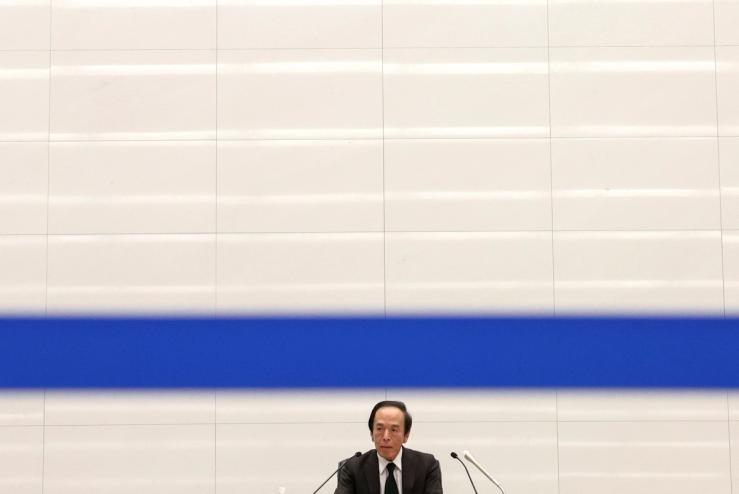The News
The Bank of Japan raised interest rates for the first time in 17 years.
By shifting its key interest rate from -0.1% to a range of 0%-0.1%, it ended eight years of negative interest rates and became the last country to exit a global era of negative rates that began in the 2010s.
SIGNALS
Historic move for nation that has struggled with stagnation
Japan used years of negative rates — where banks essentially paid customers to borrow from them — as a tactic to stimulate an economy struggling with decades of stagnation and deflation. Tuesday’s decision signals an end to the nation’s “Deep Freeze” and long-term economic struggles, Bloomberg columnist John Authers wrote Tuesday. “In the sweep of history, this is a big deal, and it’s come earlier than most were expecting even a few days ago,” he noted. “Japan is out of the hole that it fell into once its epic asset price bubble finally burst almost two generations ago.”
Labor unions’ recent win helped drive policy change
The rate hike comes after major Japanese corporations last week agreed to a 5.28% wage increase for employees, the country’s biggest salary rise in 33 years. For decades, Japan’s largest companies avoided wage increases in an effort to keep costs low and remain competitive on the global market. Recently, however, “businesses have found that they will not be able to attract workers unless they pay attractive wages,” Saisuke Sakai, senior economist at Mizuho Research & Technologies, told Nikkei Asia. The wage boost set the stage for Tuesday’s BOJ announcement: The move “lifted hopes that the country’s ever-cautious employers have finally stopped economizing on salaries,” Nikkei’s chief business correspondent Mitsuru Obe wrote.
Economy not without warning signs
It’s not all good news for Japan: There are still economic headwinds facing the country, and the BOJ believes that there will be some pressure related to the economic situation of other nations, which are still struggling with inflation spikes and cost of living crises. “The Bank of Japan is unlikely to make additional rate increases because there will gradually appear more headwinds such as the lack of strength in prices,” Yasunari Ueno, chief market economist at Mizuho Securities, told The Wall Street Journal.



